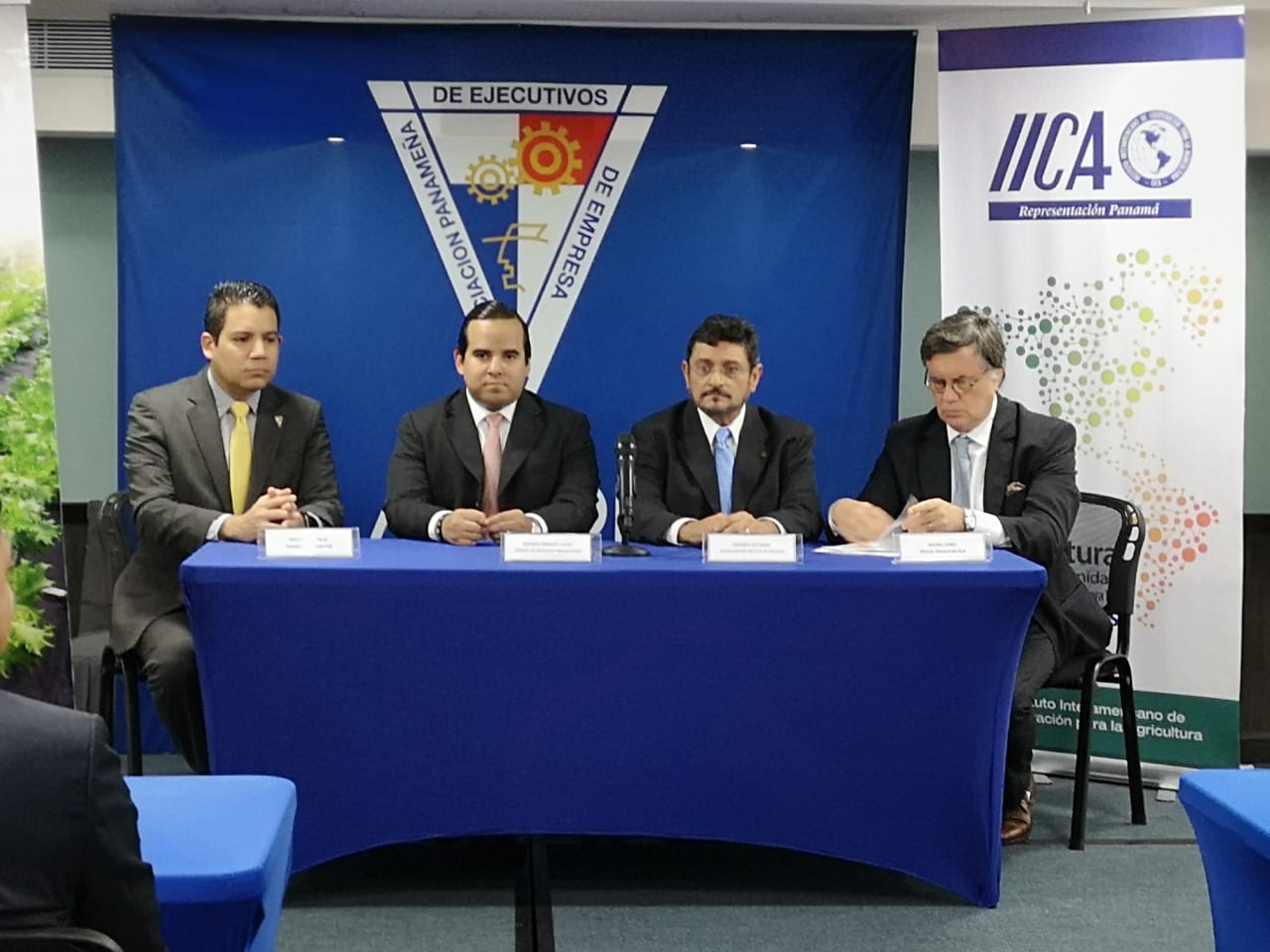Panama, IICA and CAF sign an agreement to launch an agricultural development plan in Panama

Panama City, 3 May 2019 (IICA) – The Minister of Agricultural Development of Panama, Eduardo Enrique Carles, and the Representative of the Inter-American Institute for Cooperation on Agriculture (IICA) in the country, Gerardo Escudero, signed a Technical Cooperation Agreement for the Implementation of the Agricultural Master Plan for the Western Region (PMARO) of Panama, which seeks to strengthen agricultural activity and incorporate about 15,000 producers into the local and international markets.
Manuel Otero, Director General of IICA, attended the signing ceremony for the agreement, which will allow for immediately launching the Master Plan, which involves public and private investments totaling USD 557 million over a seven-year period. The plan will aim to foster productivity, diversification, production chains, the generation of employment opportunities and tourism development, while drastically reducing inequality in Panama.
“The involvement of IICA and the Development Bank of Latin America (CAF) lends great solidity to the plan by serving as the backbone for efforts aimed at supporting agricultural development in Panama,” stated Minister Carles during the signing ceremony.
Escudero, on the other hand, stated, “We believe Panama meets all of the necessary conditions to serve as an agrifood hub. The Master Plan can incorporate Panama into an important value chain. This plan is also inclusive, given that it incorporates historically marginalized groups into production processes.”
The signing of the agreement will facilitate the disbursement of USD 27.6 million for the first phase of the plan, which will be carried out over a two-year period using resources provided by the Government of Panama, through credit from CAF.
Otero, in turn, remarked that the signing of the agreement “marks a turning point, given that the plan will lay the groundwork for modernizing agriculture in Panama.”
“This plan has a very solid foundation because it is supported by a genuine effort to drive public-private coordination through the involvement of producers’ associations, multilateral funding and IICA, which will provide technical support. All of the necessary conditions are available to turn this into a winning project that will help to improve the lives of rural families in the western region of Panama.”
This region includes the Chiriquí and Bocas del Toro provinces and the Ngäbe-Buglé comarca (indigenous region).
The plan will facilitate the implementation of long-term vertical programs for selected value chains, including the dairy, meat, palm oil, vegetable, coffee, plantain, banana and cocoa chains. Other products such as roots and tubers, rice and potato could also be incorporated later on.
The Master Plan will also allow for linking the local agriculture sector to the Panama Canal’s logistical and tourism platform, which will transform the Central American country into a leading hub for agricultural exports in the region.
Through the Plan, Panama’s western region is expected to maintain and further improve the quality of 30,000 jobs and to generate about 10,000 new employment opportunities. Also in attendance at the signing ceremony for the agreement were Felipe Ariel Rodríguez, President of the Competitiveness Center for the Western Region (CECOMRO); executives from the Panamanian Association of Business Executives (APEDE); and Mauricio Salazar, CAF Representative in Panama.
More information:
Gerardo Escudero, IICA Representative in Panama.